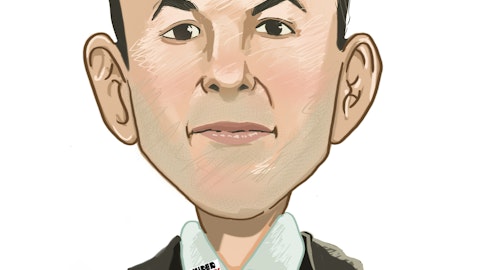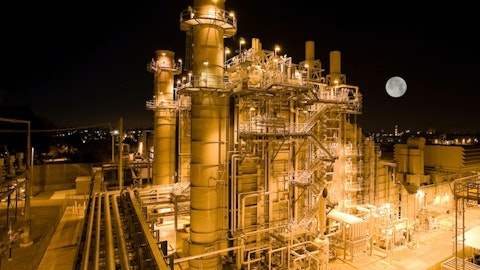Nick O’Grady: Well, as I said, there are exceptions to every rule. I think there’s also — there’s an operator piece, there’s a geology piece. But I would tell you that this is a company with a team and a history, a long history of excellent performance. You have multiple rigs operating, not just on our lands, but also on his other properties. We had a good look at a multiyear. He had built out all the infrastructure directly on the properties, which is atypical for a company of their size. And that all went into the primordial soup of our decision making, but I can tell you they know how to drill wells.
Adam Dirlam: Yes. Dave has been doing this for years. And when we went into underwrite this, there’s — a number of wells obviously that they had already drilled and completed and brought online and that gave us the conviction with David team that they could put down highly productive wells and keep well costs under control. And so, when we’re going into these types of things, we need to make sure that our analysis is bespoke.
Chad Allen: Yes. And I would say, you’re talking about a company that has everything from redundant in excess water disposal to excess gathering for crude and gas takeaway and long-term contracts in place for the operations and we’ve been thrilled at how they do it. But you you’re right. And the sense of that is if you think we weren’t worried or thinking about that when we went into this, you’d be mistaken. We definitely — that that was a big part of the analysis that we went into.
Charles Meade: Got it. So a reasonable question, but that’s helpful detail that you gave. Nick, if I could go back to your prepared comments and you’re talking about the — not just the size of the opportunity in front of you, but also the nature of the kind of opportunities more of these as you say like bespoke carve outs. I recognize that it’s — the role of all management across companies is to allocate capital. So everyone’s doing that. But hearing your comments, it seems to me like you’re — maybe there’s a shift in how you guys are thinking about yourselves away from being an oil and gas company has to be — happens to be focused on non-op and more towards a capital provider to the industry. Is that a shift that’s going on in your mind or in the minds of the management team and the Board? And if so, what — how should we change? What we expect from you guys?
Nick O’Grady: Maybe it’s a change in how we explain it, but I’d say, we’ve always been both. We’re both a capital provider, but we’re an investment company and we’re an oil and gas company. And what I tell you is that for operators that require capital to develop and these aren’t necessarily small. We hear from the biggest independence and quasi majors in a country about needs for capital for certain reasons or another. But what I tell you is, at the end of the day as a non-op, you are a capital provider and it really — but difference is we are an oil and gas company. We do our own engineering. We do our own technical work. We have the infrastructure to manage those assets ourselves. And so, what we found is, five to 10 years ago, you had a lot of true financial, whether it be private equity groups or others that provided capital in non-operated ways to operators.





